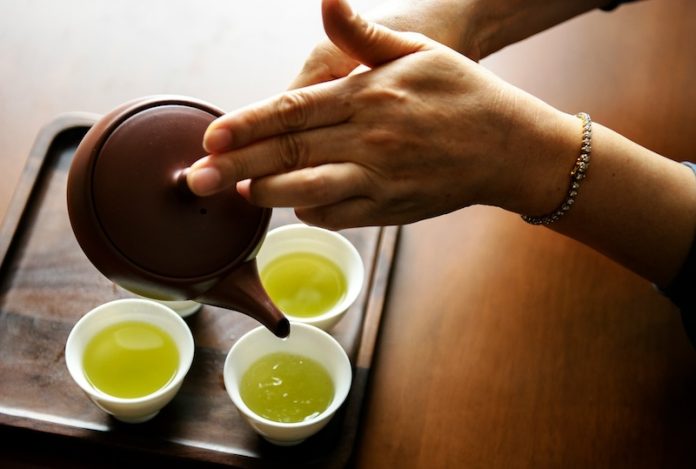
Green tea has been enjoyed for centuries, not just for its refreshing taste but also for its health benefits. In recent years, researchers have explored whether green tea can reduce the risk of cancer.
The results are promising, suggesting that this popular drink might play a role in protecting the body from certain types of cancer.
Green tea is packed with antioxidants, which are natural compounds that help protect your cells from damage. One of the most powerful antioxidants in green tea is called epigallocatechin gallate, or EGCG.
This compound has been widely studied for its ability to fight free radicals—unstable molecules that can harm cells and lead to cancer.
Several studies have shown that regular green tea drinkers may have a lower risk of developing certain cancers.
For example, a large review published in Cancer Epidemiology, Biomarkers & Prevention analyzed multiple studies and found that people who drank green tea regularly were less likely to develop breast, prostate, or colorectal cancer.
The researchers believe that green tea’s antioxidants help prevent cell damage and slow down the growth of cancerous cells.
Another study from China, where green tea consumption is common, found a link between drinking green tea and a reduced risk of lung cancer, particularly among non-smokers. This highlights how lifestyle factors, such as diet, can influence cancer risk.
Green tea also seems to have an effect on the early stages of cancer development. Research in The Journal of Cellular Biochemistry showed that EGCG can block the growth of blood vessels that tumors need to grow. By cutting off this supply, green tea may help slow the spread of cancer cells.
One area where green tea has shown significant promise is in preventing gastrointestinal cancers, such as stomach and esophageal cancer.
A study published in Gastroenterology Research and Practice suggested that people who consumed green tea had a lower risk of these cancers. The protective effect was stronger in those who drank more than three cups a day.
However, while the evidence is encouraging, it’s important to note that green tea isn’t a magic cure for cancer. Experts emphasize that it’s just one piece of the puzzle.
Factors like genetics, lifestyle, and other dietary choices all play a role in cancer risk. Drinking green tea alone isn’t enough to guarantee protection, but it can be a valuable addition to a healthy lifestyle.
Another consideration is how green tea is consumed. Freshly brewed green tea is the best option, as bottled or sweetened versions often contain less EGCG and more sugar.
Additionally, drinking green tea without milk may be more beneficial, as some studies suggest that milk can reduce the effectiveness of its antioxidants.
The World Cancer Research Fund recommends a balanced diet rich in fruits, vegetables, whole grains, and healthy beverages like green tea to reduce cancer risk. Combining green tea with other healthy habits, such as regular exercise and avoiding smoking, can enhance its potential benefits.
In summary, green tea is more than just a comforting beverage—it’s a powerful source of antioxidants that may help protect against cancer.
While it’s not a guaranteed shield, research suggests that drinking green tea regularly can reduce the risk of certain cancers and support overall health. Adding a few cups of green tea to your daily routine is a simple and enjoyable way to contribute to a healthier lifestyle.
If you care about cancer, please read studies about a new method to treat cancer effectively, and this low-dose, four-drug combo may block cancer spread.
For more information about cancer prevention, please see recent studies about nutrient in fish that can be a poison for cancer, and results showing this daily vitamin is critical to cancer prevention.
Copyright © 2024 Knowridge Science Report. All rights reserved.



